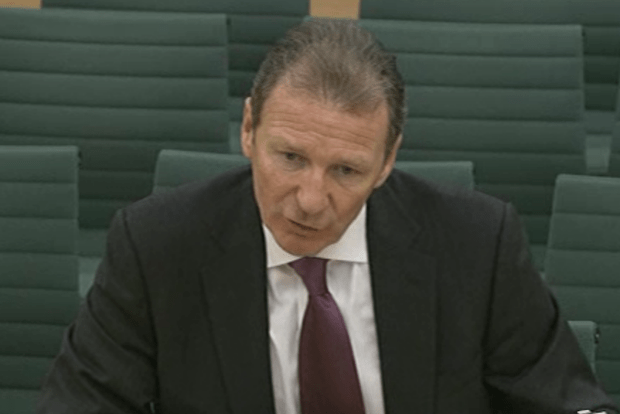What are the Coalition parties going to do for the next few months in the run-up to the general election? Judging by the way the Liberal Democrats have behaved this week, they’re going to spend a great deal of time talking about Michael Gove, which isn’t encouraging for anyone who got a little bored of that particular ding-dong around the time of the childcare debacle. They’re certainly not planning to do much in the way of legislating, either. At today’s Business Statement in the House of Commons, Angela Eagle mocked Andrew Lansley for announcing very little in the way of government business:
‘I thank the Leader of the House for his business statement, but it was yet again so devoid of actual Government business that he may as well have let me or the Chair of the Backbench Business Committee do it. In the past four weeks, more than 60% of our time has been taken up by non-Government business, because this is a zombie coalition staggering around with no discernible purpose. Is that all we can expect for the next 15 months? This Government have not just given up on legislating; they have given up on listening to Parliament, too.’
This is partly because neither party wants to rock the boat with some dreadful legislation ahead of the election. But it’s also because to a certain extent they’ve run out of road on reforms they both agree on. As James said last week, the Coalition is cohabiting, but in the absence of much legislation, they’re behaving like a couple who’ve both just retired and, with plenty of time on their hands, have realised they don’t really get on.
When he gave evidence to the Political and Constitutional Reform Committee earlier today, Lord O’Donnell was rather sanguine about this ‘zombie government’ at the end of a Coalition, but argued that having ‘somewhat less legislation’ could be an ‘opportunity to emphasise implementation’ instead. He also suggested that this lacuna might mean the parties could sit back and have big debates about long-term issues such as dementia, childhood obesity and social care.
This sounds like a classic mandarin view: perhaps he'd fancy a few Royal Commissions in the mix, too? And there would be few topics that need long-term debates where the parties would be prepared to have long-term debates: just look at that dreadful debate in the House of Commons on food banks before Christmas for an example of a big issue that has become entirely poisoned by partisan point-scoring.
But the problem with O'Donnell's implementation thesis is firstly that the Lib Dems are desperately keen to differentiate and are busy talking about all the things they don't like about the Tories. Their choice of Michael Gove as Number One target has privately frustrated some among their number who think Liberals should be claiming credit for school reforms they agree with rather than engaging in a personal tussle. Secondly, Tory MPs are still cross about Europe, and as Tim Montgomerie reports in the Times today, don't plan to give up causing trouble just yet.
Jacob Rees-Mogg writes today on the Telegraph website that it 'may now be time for the Prime Minister to abandon the Sisyphean fight to maintain collective responsibility and to set out his own agenda for the next five years'. And as I reported on Tuesday, some of his colleagues want the Tories to try to force through the EU referendum bill as a government bill, rather than using another backbench bill and the Parliament Act. Because to do so in a Coalition would be to break the government equivalent of the laws of physics - Sir Jeremy Heywood would not be able to authorise his civil servants to work on a bill that one Coalition partner was blocking - these MPs really mean that the Conservatives should move to a minority government by what one plotter described as 'sacking the Lib Dems' in some way. The problem is that none of them can work out how the Tories could 'sack' the Lib Dems, even though they've been giving it detailed thought. That they're buzzing around thinking about this isn't a good sign, though.
So what are the two Coalition parties going to do in the next few months? Brood and sulk, it appears. Which is a shame because Gus O'Donnell has a point when he says they could use this space to talk about all the reforms they have agreed on, which have been radical and which should tell voters a good story about both parties in 2015.







Comments